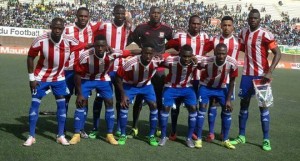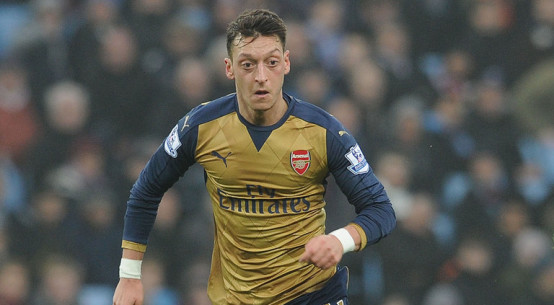
What next for Gambian football?
Well this morning Lamin Kabba Bajo, Sang John Ndong and all those charged or somehow affiliated with The Gambia national football team, the Scorpions have a problem to deal with and must start thinking about ways and plans to solve this problem.
The nation’s overly long-standing quest to free herself from the headlock of footballing failures continues to withstand the test of time. And to unshackle herself, the situation it presented must be thoroughly and honestly redressed without any sugar-coating.
The word is that ‘the wisdom of learning from failure is incontrovertible’. If we are to improve our team’s non-existent performances then we must genuinely learn from our past failings, which we may not realise without excavating the superficial layers of it’s genesis.
It’s good that the new slogan is ‘rebuilding and rebranding’, which by the look of the evidence presented in the wake of yet another futile campaign, The Gambia’s failings on the footballing terrains are far deeply entrenched, and scouring the surfaces may not be the long term solution, thus a thorough feasibility study of the current state of what lies beneath is what is required before any rebuilding process. All the loose soil beneath the surface must be removed before laying the foundations for the ‘rebuilding and rebranding’ process.
There is a widely held perception that learning from the past is straight forward – just get people to reflect on what went wrong and exhort to avoiding similar errors, job done. Well how misguided is that belief?
If we are to improve and move away from these sub-sequential failings that have become synonymous with our name, our attitudes and the activities required to detect and analyse those failings has to take precedence and all the derailing factors must be jettisoned in order to embrace the lessons of our failures.
Sometimes admitting failures can be perceived as taking the blame and thus as humans we tend to shift to the culture of psychological safety by placing the blame on someone else’s doors. Well there is no need for any blame games in this instance. I believe we have all seen and mostly admitted that there is no way forward in the current state of our football and for us to gain the recognition due for this football mad nation things has to change and change it must be and for good.
By this, we have to do it together as a nation, from authorities, pundits and commentators to fans and media personnel, all working together to achieve a common goal – which is to see our nation’s football where we rightly believe to be it’s rightful station.
This is our collective problem and those who believe they have better ideas, please do not disengage yourselves from the common pursuit. If you can, knock on the doors of the football Secretariat, apprise to them what you’ve got. And those at the Secretariat, leave all doors open to those knocking and do not dismiss or brush aside any of the proposals and the genuine objectives coming from the people with a common goal, just as beautifully enshrined in our national pledge “we must stand together as one people with one goal and move forward as one nation.”
Now that the inevitable has come sooner rather than later – as the road to Gabon 2017 came to an inexorable end, after the Scorpions’ goalless draw at home to the Mourabitones of Mauritania last night. The focus henceforth should strictly be on preparing for the next phase of our stuttering football by preparing the next generation of football players, coaches and football administrators.
If that means taking a script from the scriptures of others, let it be. There is an inevitable urge to travel far and wide around the world in search of the best practices that could propel our faltering football. Just like other nations who where far better placed than us had done in the past to recover from their own failings and the results in the end became the envy of the world.
German football is booming, reaping the rewards of the strategy drawn up after their dismal performances at Euro 2000, when Germany finished bottom of their group, which forced the German Football Federation (DFB) to travel the world in search for answers to get their football back on track. This led to an overhaul of their youth football set ups, as the DFB collaborated with the Bundesliga clubs to draw developmental programmes that will create more technically proficient home grown players through the setting up of academies right across the top two divisions. The scheme did not just produce players, but also thousands of highly skilled coaches with Pro-licence, who in turn went on to work in these developmental structures.
Belgium are currently the number one team in the world. Well, in little more than a decade ago you will be called a sea-side liar or at worst taken to the psychiatrist for predicting they will be where they are now. And this came about through the visions of Michel Sablon, a former Belgian player, who assumed the role of technical director for the Belgian Federation in 2006. To improve the lacklustre state of the Belgian football, he drew up a blueprint entitled “La vision de formation de l’URBSFA” ( a “vision” for the formation of Belgian football) which will in turn revolutionise Belgian football.
His plan was to focus on football education, right from the basics of being comfortable with ball at feet to the complexities of team dynamics and tactics and every player was educated step by step. Players know their roles at an early age and that helps them gel into the system.
But before this blueprint, Sablon an co invited almost thirty federation coaches from the Dutch- and French-speaking parts of the country, to discuss a radical change in approach. They also tapped into philosophies and training methods in the national setups in Netherlands and France, their neighbours in the north and south, as well as at clubs such as Ajax and Barcelona. The result today is there for all to see.
Before their triumph at the 2010 World Cup in South Africa, Spain, a country that boast two of the best football clubs in the world: Real Madrid and Barcelona, had one of the worst world Cup records amongst all of the top elite football nations. A fourth place finish in 1950 World Cup was their best showing in 16 tournaments, with most of their other campaigns ending in humiliation, misfortune or abject failure. The triumph in Euro 2008 was their first ever trophy in 58 years. However they followed that glory by winning the World cup in South Africa and retaining the European Cup in 2012. Now all these were not achieved in the absence of a proper restructuring of the football set up that delivered the current vast pool of talents at their disposal. Which was all ignited by the seeds sown by the Spanish Football Federation over the last 15 years, and part of that was credited to the federation’s long-term commitment to a nationwide programme for the training of coaches. According to European football’s governing body Uefa, Spain had almost 15,000 Uefa A and Pro Licence coaches by the time of their triumph in 2008 – more than double the number of any other European nation. And that is despite it taking 750 study hours to acquire a Pro Licence in Spain. Most of these coaches all coached in the various ranks of football, from youth to senior levels, with all of them promoting one way of playing the game of football – the tiki-taka passing football championed by Barcelona. And since 1998, Spanish youth teams from under-16 to under-21 level have won 19 Uefa and Fifa championships.
Now, by this, am in no means putting The Gambia in the same bracket as these footballing power houses, but I believe we can learn a thing or two from how they overcame their own mishaps in the game. Like them we need a drastic structural overhaul if Gambian football is to get to anywhere. Just like our recent opponents Mauritania did when they came to the realisation that something had to give in. They withdrew from all International football competitions between 2009 and 2011 to put their house together, and that resulted in the appointment of Ahmed Ould Abderrahmane as the chairman of the Football Federation FFRIM. When he took over office, Mauritania were 206th in the FIFA World rankings with very little prospect of salvation.
However, as his first action, Mr Abderrahmane and his administration decided they needed to do their best to get the team up the ranking table away from where they were. They went on to organise more international matches for the national side, even if at first the results were unsuccessful. By March this year they got to 106th on the ranking table.
As much as the number of matches including the FIFA recognised friendlies helped their ascend on the rankings, it also helped to embed a cohesive team, as the mantra ‘practice makes perfection’ is no myth. The more the Mauritanian players played together the better their understanding and this was evident in their recent successes against South Africa and The Gambia.
Finally, let’s all remind ourselves, this is “For the Gambia our homeland.” Let’s all strive and work together to realise a common goal.



